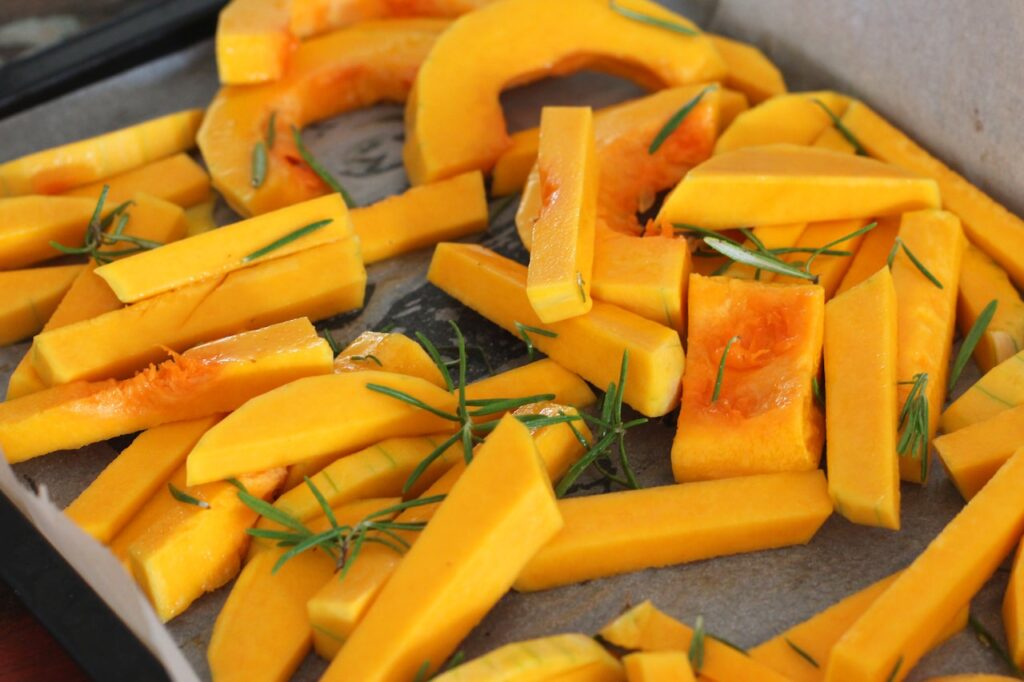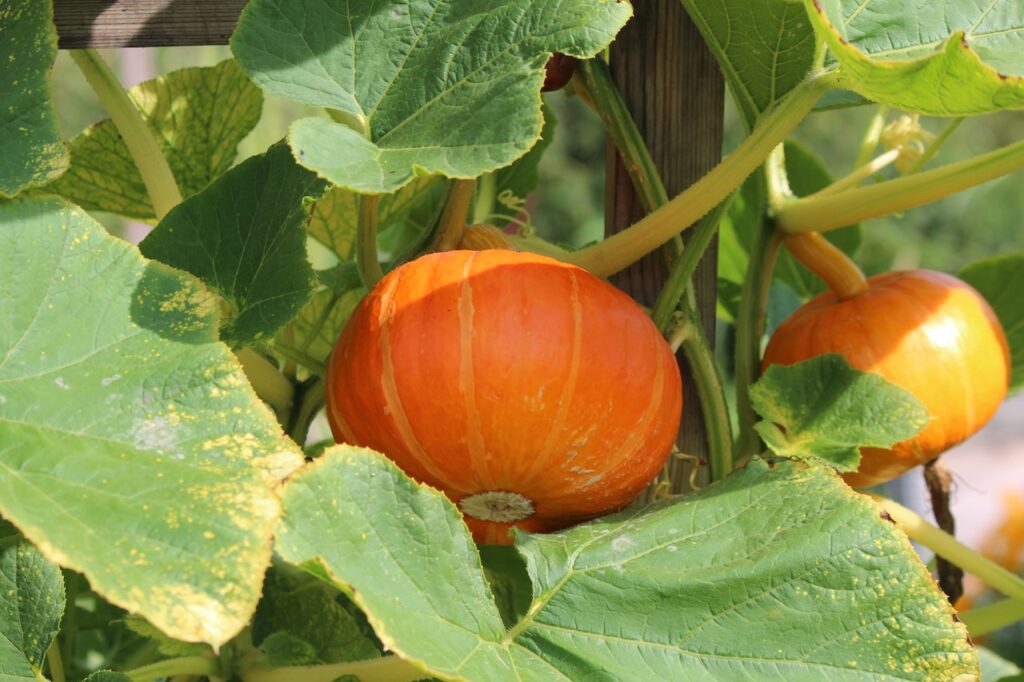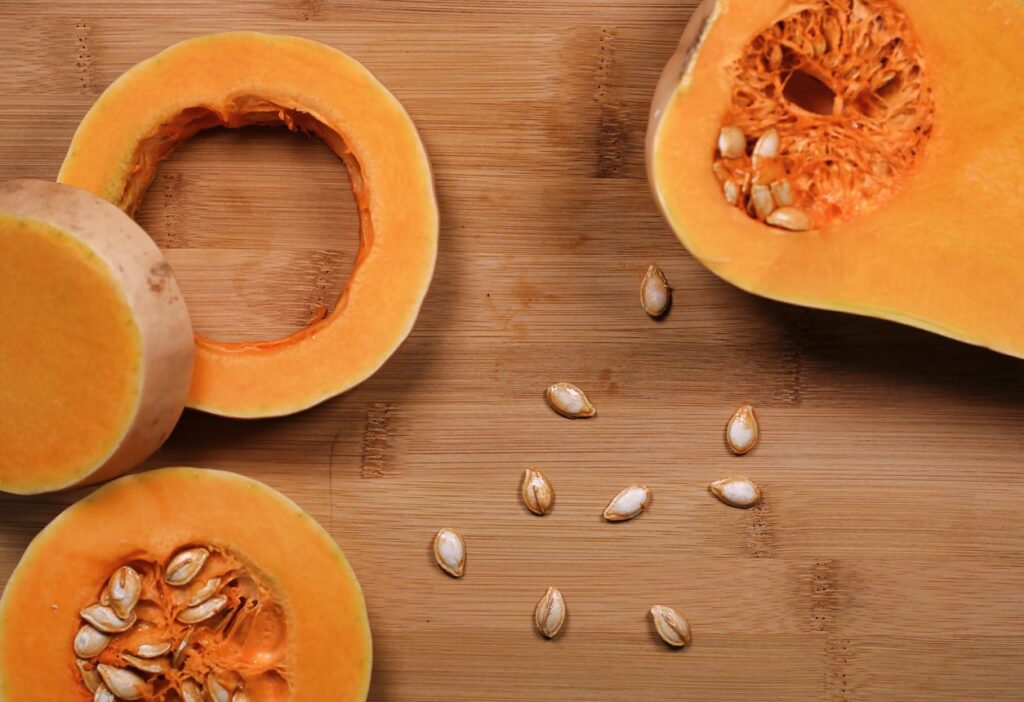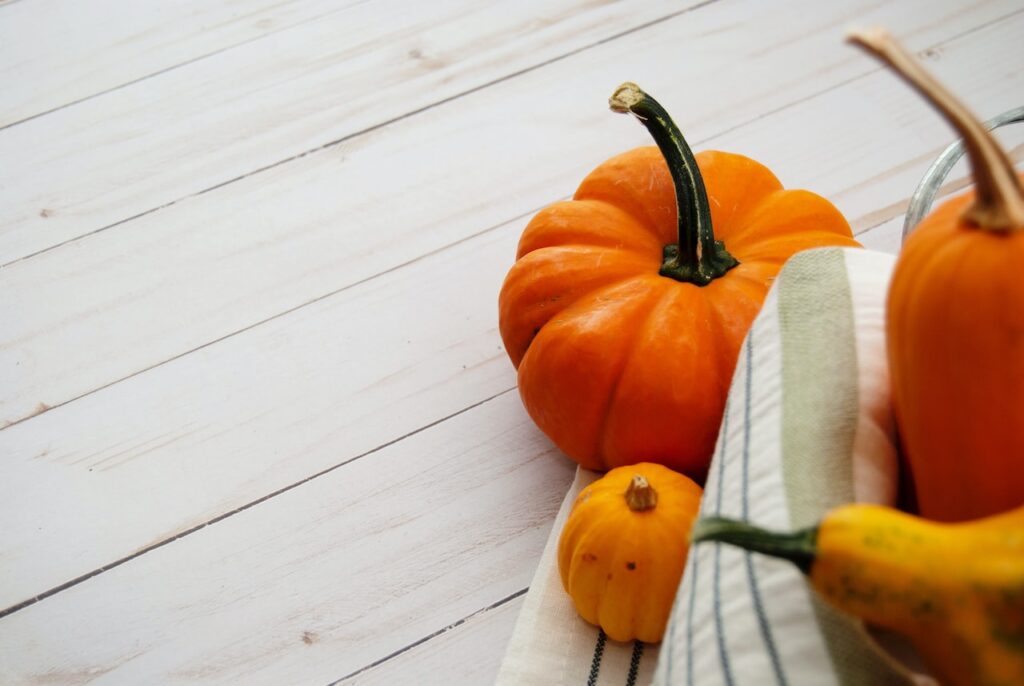Can Dogs Eat Butternut Squash? Well, the answer is yes! But you’re not the only one curious about it.
Butternut squash is like a super healthy snack for your furry friend. It’s full of good stuff like fiber, vitamins, and minerals. As long as you prepare it the right way, your dog can enjoy this tasty and creamy veggie.
Choosing the best food for your dog is important, but figuring out what human foods they can eat can be a bit tricky. The good news is that there are some foods we love that are also good for our dogs. Make sure to give them the right amount and serve it in a way that’s safe for them.
If you want to treat your pup with something different from the usual dog treats, butternut squash is a great option. It’s not only healthy but also has a yummy texture that will make your dog feel extra special. So, go ahead and share some butternut squash goodness with your furry friend!

Table of Contents
What Is Butternut Squash?
Butternut squash is a kind of winter squash, like pumpkins and spaghetti squash. These squashes grow on vines, and people cook them in different ways like boiling, roasting, or grilling. Butternut squash has a sweet and nutty taste, adding a special flavor to salads, soups, grain bowls, pasta, and other yummy dishes.
Is butternut squash good for dogs?
Yes, your dog can enjoy butternut squash as long as it’s cooked. Make sure it’s plain, without any extra salt, sugar, or fats. You can cook butternut squash by boiling, steaming, baking, roasting, or even microwaving it for your furry friend.
Like many fruits and vegetables, butternut squash is super healthy for your dog. It’s full of fiber, potassium, and vitamins A and C, which help keep your dog’s immune system, muscles, skin, and vision in good shape.
Butternut squash also has the power to reduce inflammation and might even help prevent certain types of cancers. It’s a bit like pumpkin and can be helpful for your dog’s digestive system. If your dog is having tummy troubles like diarrhea, some cooked butternut squash on their regular food could be a helpful and tasty solution.

Can Dogs Eat Butternut Squash?
Most dogs can have a bit of butternut squash now and then, and they’ll be fine. It’s like a special treat that can give them important vitamins and nutrients, making it a good choice if you want to share some human food with your dog once in a while.
But even though butternut squash is a healthy option, it can still be tricky for some dogs. If your dog is allergic or sensitive to butternut squash, it’s better not to give it to them. And if you do share, make sure to cut it into small pieces and keep a close eye on your dog to make sure they don’t choke.
Remember, it’s best to give butternut squash as a treat and not too often, so your dog doesn’t get too many extra calories in their diet. It’s all about keeping them healthy and happy!
Is butternut squash bad for dogs?
Giving your dog raw butternut squash can be a bit of a problem. It wouldn’t taste good for them, and it’s tough to digest like it would be for us humans. Since it’s so hard, big pieces of it could be a choking risk or even cause problems in their tummy if they don’t chew it enough.
It’s a good idea to skip giving your dog the skin or seeds of the butternut squash too, as these can also be hard for them to digest. The seeds aren’t poisonous, so don’t worry if your dog accidentally eats a couple, but they could bother their throat because of their sharp points.
If your dog manages to snatch a bit of butternut squash that was cooked with some fat, salt, or sugar, it’s okay, as long as it’s a small bite or two. But if it had nutmeg in it, that could be a real problem. Nutmeg can upset your dog’s stomach and even be poisonous, so if that happens, it’s best to call your vet right away. Safety first!

How to prepare butternut squash
If you want to give your dog some veggies, butternut squash is a great choice to start with. It’s soft and sweet, and most dogs will eat it! But you need to prepare it the right way to make sure they enjoy it.
If you’re keeping the skin on, it’s a good idea to use an organic squash to avoid chemicals. Surprisingly, it’s fine to give your dog the skin too. That’s where most of the good stuff is, and once it’s cooked, it becomes soft and easy for your dog to digest.
Our favorite way to prepare butternut squash is to cut it into small cubes (about 1-2 inches) and then either roast or boil it. If you’re roasting, you can add a tablespoon of coconut oil, which is safe for dogs. Pop it in the oven at 375 degrees Fahrenheit for about 25-30 minutes or until it’s tender. If you’re boiling, put it in hot water for 15-20 minutes.
Before cooking, don’t forget to take out the seeds and guts and throw them away. Then, your dog can enjoy a tasty and healthy treat!
How to feed butternut squash to my dog?
If your dog is getting a bit bored with regular treats, you can try using butternut squash as a tasty alternative. There are lots of homemade dog treat recipes, and here are a few easy ideas with butternut squash:
1: Bake slices of butternut squash on low heat until they get chewy. Your dog will love this delicious and chewy treat.
2: Boil and mash some butternut squash, let it cool, and then scoop a spoonful into their favorite Kong toy for a fun and tasty challenge.
3: Make cool treats by mashing cooked butternut squash and putting spoonfuls into an ice cube tray. Freeze it overnight for a chilly and refreshing snack.
For something extra special, you can try the Veggie Turducken recipe from the creative folks at Rover. Your dog will enjoy these homemade butternut squash treats!

Risks of Feeding Butternut Squash to Dogs
Adding a spoonful of plain, cooked butternut squash to your dog’s food can be a healthy treat. However, it’s important to be cautious about giving too much butternut squash, as it can pose risks to your furry friend. Here are three things to be aware of:
- Choking Hazard: Raw butternut squash, like other starchy vegetables, can be tough for dogs to chew and digest, making it a choking risk. To minimize this danger, you can cook or purée the squash. This also helps reduce the chances of squash seeds and pulp causing intestinal blockage or constipation.
- Gastrointestinal Upset: Seasonings in butternut squash recipes, such as soups, can cause severe stomach reactions in your pet. Always make sure the squash is plain, as added ingredients like butter and dairy products may harm your dog’s stomach, leading to nausea, vomiting, and diarrhea.
- Pancreatitis: Butternut squash is high in carbohydrates. If your dog can’t burn off excess carbs and glucose, their body might store them as fat. Rapid weight gain and obesity can result in chronic joint problems and inflammation of the pancreas. To avoid surpassing your dog’s calorie limit, be mindful of the amount of butternut squash you give them.
References: Pedstar. Masterclass